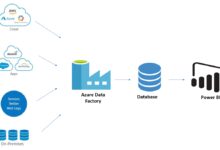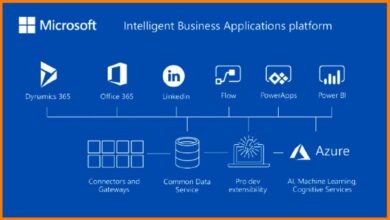MS Azure: 7 Powerful Reasons to Choose This Cloud Giant
Cloud computing isn’t just a trend—it’s the backbone of modern business. And when it comes to dominating the cloud landscape, MS Azure stands tall with unmatched versatility, security, and global reach.
What Is MS Azure and Why It Matters

Microsoft Azure, commonly referred to as MS Azure, is a comprehensive cloud computing platform developed by Microsoft. Launched in 2010, it has rapidly evolved into one of the top three cloud service providers globally, competing directly with Amazon Web Services (AWS) and Google Cloud Platform (GCP). But what sets MS Azure apart isn’t just its scale—it’s the seamless integration with Microsoft’s ecosystem, making it a natural choice for enterprises already using Windows, Office 365, or Dynamics 365.
Core Components of MS Azure
At its foundation, MS Azure offers a wide array of services that fall into several key categories: compute, storage, networking, databases, analytics, artificial intelligence (AI), and Internet of Things (IoT). These services are delivered through a global network of data centers managed by Microsoft, ensuring high availability and low latency for users worldwide.
- Compute: Virtual Machines, Azure Functions, App Services
- Storage: Blob Storage, Disk Storage, Data Lake Storage
- Networking: Virtual Networks, Load Balancers, Azure DNS
Each component is designed to be modular, allowing businesses to pick and choose services based on their specific needs. This flexibility is one of the primary reasons why MS Azure has become a go-to solution for startups and Fortune 500 companies alike.
How MS Azure Compares to Other Cloud Platforms
While AWS holds the largest market share in cloud computing, MS Azure differentiates itself through hybrid cloud capabilities and deep integration with on-premises environments. For organizations that rely heavily on Windows Server and Active Directory, migrating to or extending into MS Azure feels more intuitive than switching to a competitor’s platform.
“Azure’s hybrid model is a game-changer for enterprises with legacy systems. It allows them to innovate without abandoning their existing infrastructure.” — Gartner Research, 2023
Additionally, Azure supports multi-cloud strategies, enabling interoperability with AWS and GCP through tools like Azure Arc. This openness positions MS Azure not just as a cloud provider, but as a cloud orchestrator.
Key Benefits of Using MS Azure
Organizations adopt MS Azure for a variety of strategic reasons. From cost efficiency to advanced AI tools, the platform delivers tangible value across industries. Let’s explore the most compelling benefits that make MS Azure a powerful ally in digital transformation.
Scalability and Flexibility
One of the hallmark features of any cloud platform is scalability, and MS Azure excels in this area. Whether you’re running a small web application or managing petabytes of data for machine learning models, Azure allows you to scale resources up or down in real time. Auto-scaling rules can be configured based on metrics like CPU usage, network traffic, or queue length, ensuring optimal performance without over-provisioning.
This elasticity translates into cost savings and operational agility. For example, an e-commerce site can automatically scale up during holiday seasons and scale back during off-peak times, paying only for what it uses. This level of responsiveness was nearly impossible in traditional IT setups.
Enterprise-Grade Security and Compliance
Security is often the top concern for businesses moving to the cloud, and MS Azure addresses this with a robust, multi-layered security architecture. Azure Security Center provides unified security management and advanced threat protection across hybrid cloud workloads. It continuously monitors for vulnerabilities and offers recommendations to improve security posture.
Moreover, MS Azure complies with over 90 global and industry-specific standards, including GDPR, HIPAA, ISO 27001, and SOC 1/2/3. This makes it an ideal choice for regulated industries such as healthcare, finance, and government. Microsoft also offers Azure Policy and Azure Blueprints to enforce organizational standards and regulatory requirements at scale.
Cost Management and Pricing Models
Understanding cloud costs can be challenging, but MS Azure simplifies this with transparent pricing and powerful cost management tools. The Azure Pricing Calculator allows users to estimate costs before deployment, while the Azure Cost Management + Billing service provides real-time insights into spending patterns.
Azure offers several pricing models, including pay-as-you-go, reserved instances (which can save up to 72% compared to on-demand pricing), and spot pricing for non-critical workloads. This flexibility enables organizations to optimize their cloud spend based on usage patterns and business priorities.
MS Azure Services You Need to Know
With over 200 services available, navigating MS Azure can feel overwhelming. However, certain services form the backbone of most cloud implementations. Understanding these core offerings is essential for leveraging the full potential of MS Azure.
Azure Virtual Machines (VMs)
Azure Virtual Machines allow businesses to run Windows and Linux virtual machines in the cloud. They are ideal for workloads that require full control over the operating system and environment. VMs can be used for everything from hosting websites to running complex enterprise applications.
What makes Azure VMs stand out is their integration with other Azure services. For instance, you can easily attach Azure Disk Storage for persistent data, use Azure Backup for automated backups, and leverage Azure Site Recovery for disaster recovery. Additionally, Azure offers specialized VMs for high-performance computing (HPC), GPU-intensive tasks, and memory-heavy applications.
Azure App Services
Azure App Services is a fully managed platform for building, deploying, and scaling web apps and APIs. It supports multiple programming languages, including .NET, Java, Node.js, Python, and PHP, making it developer-friendly. With built-in CI/CD pipelines, developers can automate deployments from GitHub, Azure DevOps, or other repositories.
App Services also offer features like custom domains, SSL certificates, and auto-scaling. For organizations adopting microservices architecture, Azure App Services integrate seamlessly with Azure Kubernetes Service (AKS) and Azure Service Fabric.
Azure Blob Storage
Azure Blob Storage is Microsoft’s object storage solution for the cloud. It’s designed to store massive amounts of unstructured data such as text, images, videos, and backups. Blob Storage is highly durable, with data replicated across multiple data centers to prevent loss.
There are three tiers in Blob Storage: Hot, Cool, and Archive. The Hot tier is optimized for frequent access, the Cool tier for infrequent access, and the Archive tier for long-term retention with the lowest storage cost. This tiered approach allows organizations to balance performance and cost effectively.
Hybrid Cloud Capabilities of MS Azure
Unlike many cloud providers that focus solely on public cloud offerings, MS Azure leads the industry in hybrid cloud solutions. This is particularly valuable for organizations that cannot fully migrate to the cloud due to regulatory, technical, or financial constraints.
Azure Stack: Extending the Cloud On-Premises
Azure Stack is a family of products that brings Azure services into on-premises data centers. Azure Stack Hub allows organizations to run Azure services locally, while Azure Stack Edge provides edge computing capabilities with built-in AI and data processing. This enables consistent development and operations across cloud and on-premises environments.
For example, a manufacturing company might use Azure Stack Edge to process sensor data from factory machines in real time, then send aggregated results to the public Azure cloud for long-term analysis. This reduces latency and bandwidth usage while maintaining cloud-grade security and management.
Azure Arc: Managing Resources Across Environments
Azure Arc extends Azure’s management plane to servers, Kubernetes clusters, and data services running anywhere—on-premises, in multi-cloud, or at the edge. With Azure Arc, IT teams can apply policies, monitor performance, and deploy updates across all environments from a single control plane.
This unified management approach simplifies operations and reduces complexity. For instance, an organization using AWS EC2 instances can onboard them to Azure Arc and manage them alongside Azure VMs using the same tools and governance policies.
“Azure Arc is redefining cloud management by breaking down silos between environments.” — Microsoft Ignite Keynote, 2022
AI and Machine Learning with MS Azure
Artificial intelligence is no longer a futuristic concept—it’s a business imperative. MS Azure provides a comprehensive suite of AI and machine learning tools that empower organizations to build intelligent applications without requiring deep expertise in data science.
Azure Machine Learning Studio
Azure Machine Learning is a cloud-based environment for training, deploying, and managing machine learning models. It supports both code-first workflows (using Python and Jupyter notebooks) and no-code/low-code options through a visual interface. Data scientists and developers can collaborate within the same workspace, accelerating model development.
The service integrates with popular frameworks like TensorFlow, PyTorch, and scikit-learn, and supports automated machine learning (AutoML) to help users build models faster. Once trained, models can be deployed as web services accessible via REST APIs.
Cognitive Services: Ready-to-Use AI APIs
For businesses that want to add AI capabilities without building models from scratch, Azure Cognitive Services offer pre-built APIs for vision, speech, language, and decision-making. Examples include:
- Computer Vision API: Analyze images for objects, text, and faces
- Text Analytics API: Extract sentiment, key phrases, and entities from text
- Speech to Text and Text to Speech: Enable voice-enabled applications
- Translator Text API: Support multilingual customer experiences
These APIs can be integrated into applications with just a few lines of code, making AI accessible even to small development teams.
AI for Industry-Specific Solutions
MS Azure also offers industry-specific AI solutions. For healthcare, Azure Health Bot enables conversational AI for patient engagement. In retail, Azure Personalizer uses reinforcement learning to deliver personalized product recommendations. These tailored solutions reduce development time and increase the likelihood of successful AI adoption.
DevOps and Application Development on MS Azure
In today’s fast-paced digital world, the ability to develop, test, and deploy applications quickly is critical. MS Azure provides a robust DevOps ecosystem that supports continuous integration and continuous delivery (CI/CD), enabling teams to deliver software faster and more reliably.
Azure DevOps Services
Azure DevOps is a suite of services that includes project management, source control, CI/CD pipelines, testing tools, and artifact repositories. Teams can plan work using Agile boards, manage code in Azure Repos (Git), and automate builds and releases using Azure Pipelines.
Integration with popular IDEs like Visual Studio and VS Code, as well as third-party tools like Jenkins and GitHub, ensures flexibility. Azure DevOps also supports multi-platform deployments, allowing teams to release applications to Azure, AWS, GCP, or on-premises environments.
Containerization with Azure Kubernetes Service (AKS)
Containers have revolutionized application deployment by packaging code and dependencies into lightweight, portable units. MS Azure supports containerization through Azure Kubernetes Service (AKS), a managed Kubernetes service that simplifies cluster deployment and management.
With AKS, developers can focus on building applications while Azure handles the underlying infrastructure—node provisioning, upgrades, and scaling. AKS integrates with Azure Monitor for logging and performance tracking, and with Azure Active Directory for secure access control.
For microservices architectures, AKS enables independent scaling and deployment of services, improving resilience and agility.
Serverless Computing with Azure Functions
Serverless computing allows developers to run code without managing servers. Azure Functions is Microsoft’s serverless offering, supporting event-driven architectures. Functions can be triggered by HTTP requests, timers, database changes, or messages from queues.
This model is ideal for lightweight tasks such as processing file uploads, sending notifications, or integrating APIs. Since you only pay when the function runs, it’s highly cost-effective for sporadic workloads.
Real-World Use Cases of MS Azure
Theoretical benefits are important, but real-world applications demonstrate the true value of MS Azure. Across industries, organizations are leveraging Azure to solve complex challenges and drive innovation.
Healthcare: Improving Patient Outcomes
Healthcare providers like Partners HealthCare use MS Azure to analyze vast amounts of patient data for predictive analytics. By leveraging Azure Machine Learning and Azure Synapse Analytics, they can identify patients at risk of chronic diseases and intervene early.
Azure also supports HIPAA-compliant data storage and processing, ensuring patient privacy. Telemedicine platforms built on Azure App Services and Azure Communication Services have expanded access to care, especially during the pandemic.
Finance: Enhancing Security and Fraud Detection
Banks and financial institutions use MS Azure to strengthen cybersecurity and detect fraudulent transactions in real time. JPMorgan Chase, for example, uses Azure’s AI and machine learning capabilities to analyze transaction patterns and flag anomalies.
Azure’s compliance with financial regulations like PCI DSS and SOX gives institutions confidence in their cloud deployments. Additionally, blockchain services on Azure enable secure, transparent record-keeping for transactions and contracts.
Manufacturing: Enabling Smart Factories
Manufacturers like Rolls-Royce leverage MS Azure IoT Hub to collect data from thousands of sensors on jet engines. This data is analyzed in real time using Azure Stream Analytics to predict maintenance needs and prevent failures.
By integrating with Azure Digital Twins, companies can create virtual replicas of physical assets to simulate performance and optimize operations. This digital transformation reduces downtime and improves efficiency.
Getting Started with MS Azure
Beginning your journey with MS Azure doesn’t have to be daunting. Microsoft provides extensive resources, tools, and support to help individuals and organizations get up and running quickly.
Creating an Azure Account
To start using MS Azure, visit azure.microsoft.com and sign up for a free account. The free tier includes $200 in credits for the first 30 days and access to over 25 always-free services, such as Azure Functions, Blob Storage, and App Services.
After the trial period, you can continue using the free services or upgrade to a pay-as-you-go subscription. Microsoft also offers special pricing for students, startups, and nonprofits.
Learning Resources and Certifications
Microsoft Learn (learn.microsoft.com) is a free, interactive platform for learning Azure skills. It offers learning paths for roles like Azure Administrator, Developer, and Solutions Architect. Each module includes hands-on labs and quizzes to reinforce knowledge.
For career advancement, Azure certifications are highly valued in the IT industry. Popular certifications include:
- Azure Fundamentals (AZ-900)
- Azure Administrator Associate (AZ-104)
- Azure Developer Associate (AZ-204)
- Azure Solutions Architect Expert (AZ-305)
Earning these certifications validates your expertise and can boost your employability.
Best Practices for Deploying on MS Azure
When deploying workloads on MS Azure, following best practices ensures reliability, security, and cost efficiency. Key recommendations include:
- Use Resource Groups to organize related resources
- Apply Tags for cost tracking and management
- Enable Multi-Factor Authentication (MFA) for all accounts
- Regularly review and update security policies
- Leverage Azure Monitor for proactive issue detection
Adopting the Well-Architected Framework—a set of guidelines from Microsoft—helps design resilient and scalable solutions on Azure.
What is MS Azure used for?
MS Azure is used for a wide range of purposes, including hosting websites and applications, storing and analyzing data, running virtual machines, implementing AI and machine learning models, managing IoT devices, and enabling hybrid cloud environments. It’s suitable for businesses of all sizes and industries.
Is MS Azure better than AWS?
Whether MS Azure is better than AWS depends on specific needs. Azure excels in hybrid cloud integration and Microsoft ecosystem compatibility, while AWS has a broader range of services and longer market presence. Many organizations use both in a multi-cloud strategy.
How much does MS Azure cost?
MS Azure uses a pay-as-you-go pricing model, so costs depend on usage. You can start with a free account that includes $200 in credits and access to free services. For detailed pricing, use the Azure Pricing Calculator to estimate costs based on your requirements.
Can I learn MS Azure for free?
Yes, you can learn MS Azure for free using Microsoft Learn, which offers interactive modules, hands-on labs, and learning paths. Additionally, the Azure free account provides access to popular services for 12 months and $200 in credits to explore paid features.
What industries use MS Azure?
MS Azure is used across industries including healthcare, finance, manufacturing, retail, education, and government. Its compliance certifications and industry-specific solutions make it adaptable to diverse regulatory and operational needs.
MS Azure has firmly established itself as a leader in the cloud computing space, offering a powerful combination of innovation, security, and integration. Whether you’re a developer, IT professional, or business leader, understanding and leveraging MS Azure can drive digital transformation and competitive advantage. With its global infrastructure, AI capabilities, and hybrid cloud strengths, MS Azure isn’t just a cloud platform—it’s a strategic enabler for the future of technology.
Further Reading:









